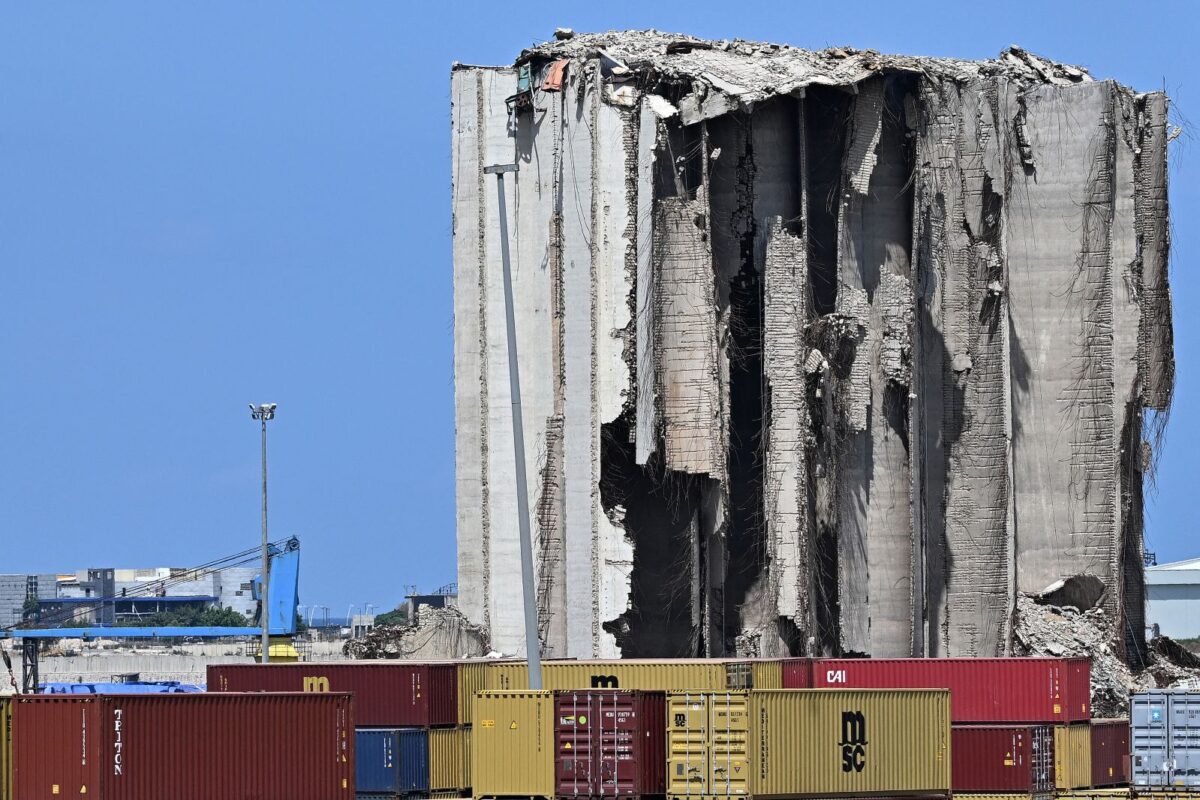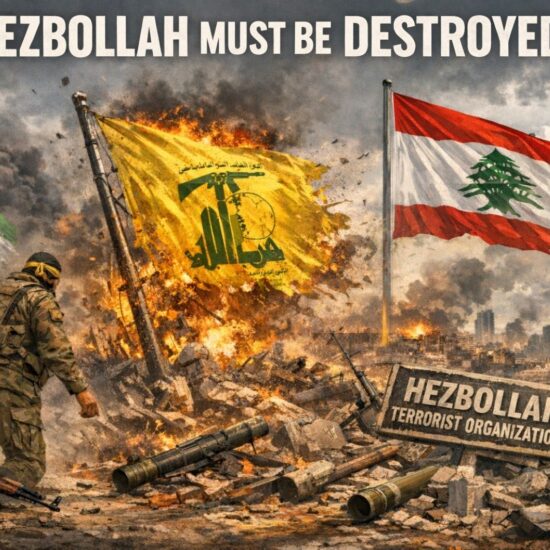
It’s been five years since the August 4 blast, and there is still no justice, while Lebanese people continue to live in uncertainty
Five years after the catastrophic Beirut port explosion, survivors and affected business owners remain in a state of limbo — without compensation, justice, or closure. Despite promises of insurance payouts and accountability, the Lebanese state has largely failed to support those impacted, leaving communities to shoulder the burden of recovery themselves.
The blast, caused by the improper storage of nearly 3,000 tones of ammonium nitrate, killed over 220 people, injured thousands more, and leveled large swaths of the capital on August 4, 2020. It came at a time when Lebanon was already grappling with one of the worst economic crises in its history — a collapse compounded by a sovereign debt default, currency devaluation, and the onset of the COVID-19 pandemic.
With state institutions paralyzed by political interference and repeated legal obstructions stalling the investigation, no senior officials have been held accountable. In the absence of a meaningful state response, residents, business owners, and members of the Lebanese diaspora have taken reconstruction into their own hands. Much of the rebuilding work has been made possible through grassroots efforts, international NGOs, and external donations.
Still, large portions of the city remain in disrepair. While some homes and businesses have managed to restart, many continue to struggle under the weight of financial ruin and emotional trauma. The port explosion not only left behind physical destruction but also reinforced a deeper collective wound: the enduring absence of accountability in a country marked by systemic failure.
During the inauguration of a street named in memory of the Beirut port explosion victims near the blast site, Prime Minister Nawaf Salam reaffirmed his government’s commitment to justice and accountability. He stressed that no one would be shielded from responsibility and called on all political forces to refrain from interfering in the judicial process.
Salam underscored the government’s full support for the investigation, pledging to provide the judiciary with all necessary assistance to ensure an independent and unobstructed path to uncovering the truth behind the 2020 tragedy.
In Lebanon
Awaited Session: The Cabinet is set to meet Tuesday to discuss extending state authority using only official forces, focusing on exclusive control over weapons. A final proposal is being drafted by the Presidency, blending elements from key state speeches. One option involves reaffirming state control of arms, with implementation left to the Higher Defense Council. Hezbollah and Amal ministers are expected to attend to voice their views.
New Recruitment: The Lebanese Army has opened recruitment for male trainee soldiers in combat units, with applications accepted via LibanPost from August 5 to October 3, 2025. Selection will be based on merit and operational needs. Full details are available at military posts or on the army’s website.
New Strikes: Israel launched a series of airstrikes across Lebanon on Thursday, in one of its largest attacks since the November ceasefire with Hezbollah. At least seven raids hit areas in the Bekaa Valley, Baalbek, and Ghaziyeh, far from the southern border, according to Lebanon’s National News Agency.
Israel’s defense minister claimed the strikes targeted Hezbollah’s missile production sites. Attacks also hit Brital, Nasiriyah, Jezzine, and Khardali, causing fires and visible destruction.
Mr President: Lebanese President Joseph Aoun has renewed his demand for Hezbollah to disarm, cautioning that if the group does not comply, Israel may use it as a reason to keep launching attacks. He said the issue will be addressed in an upcoming cabinet meeting. This comes amid increasing pressure on Hezbollah’s armed presence after last year’s war with Israel. Both the Lebanese government and the United States are calling for Hezbollah to give up its weapons to ensure the state holds exclusive control over arms.
In The Region
Families Speak Up: Families of Israeli captives in Gaza have condemned Prime Minister Netanyahu’s claims that their release depends on a “military resolution,” calling them misleading. They warn that continued military action endangers the hostages, who face starvation and severe conditions. Recent images highlight the urgent humanitarian crisis they are enduring.
Starvation Continues: The UN has confirmed that famine is unfolding in Gaza, where many children are severely malnourished due to the ongoing blockade. This week, Gaza also reached grim milestones, with the official Palestinian death toll surpassing 60,000 — a number likely much higher when accounting for those buried under rubble from airstrikes.
Arrests in Palestine: Since the war began in Gaza in October 2023, Israeli authorities have arrested 18,500 Palestinians in the West Bank, East Jerusalem, and Gaza, including 570 women, 1,500 children, and 194 journalists. At least 75 prisoners have died in Israeli custody since October 7, with 46 from Gaza. Israeli authorities still hold the bodies of 72 prisoners.
Peace and Violence: Druze armed groups attacked Syria’s internal security forces in Suwayda, killing at least one soldier and injuring others, while shelling several villages in the southern province, state-run Ekhbariya TV reported.
The attack violated a ceasefire in the predominantly Druze region, where sectarian violence claimed hundreds of lives last month, according to a security source cited by Ekhbariya.
What We Are Reading
One Night at The Museums: Journalist Valeria Rando writes about the reopening of Lebanon’s museums as symbols of the country’s complex history and ongoing challenges. She contrasts the National Museum’s dangerous Civil War past with the recent reopening of the Sursock Museum after the 2020 explosion. On July 29, 24 museums across Lebanon opened for one night, serving as reminders of Lebanon’s past—from war and economic crisis to the port blast—and spaces for public reflection.
Martyrdom Without Benefits: Hezbollah’s Social Contract Unravels: Editor-in-chief Makram Rabbah writes that Hezbollah’s suspension of education stipends signals a shift from financial prosperity to prolonged hardship and ongoing sacrifice. He argues Hezbollah’s image as a “clean” resistance masks its ties to illicit activities. Unlike other militias, Hezbollah continues to produce “martyrs” through its involvement in Syria, exposing its fighters and families to repeated losses.
Ziad Rahbani Passes Away at 69, Leaving a Lasting Mark on Arab Music and Theatre: Journalist Rodayna Raydan writes about Ziad Rahbani, son of singer Fairouz and composer Assi Rahbani, who became a pioneering figure in Arabic music and political theater. Starting as a teenager composing for his mother, Ziad gained fame for his bold, satirical plays that reflected Lebanese society and war’s contradictions. He continued to compose iconic songs for Fairouz and created his own music, leaving a lasting mark on Lebanese and Arab culture.
The Clashes In Suwayda May Be Over, But the Aftermath Has Just Begun: Political psychologist Ramzi Abu Ismail writes that although fighting in Suwayda has paused, the conflict remains unresolved and uncertainty grows. The main scenario is the continuation of local Druze control under the Suwayda Military Council, with Damascus tolerating limited autonomy to prevent further escalation.








